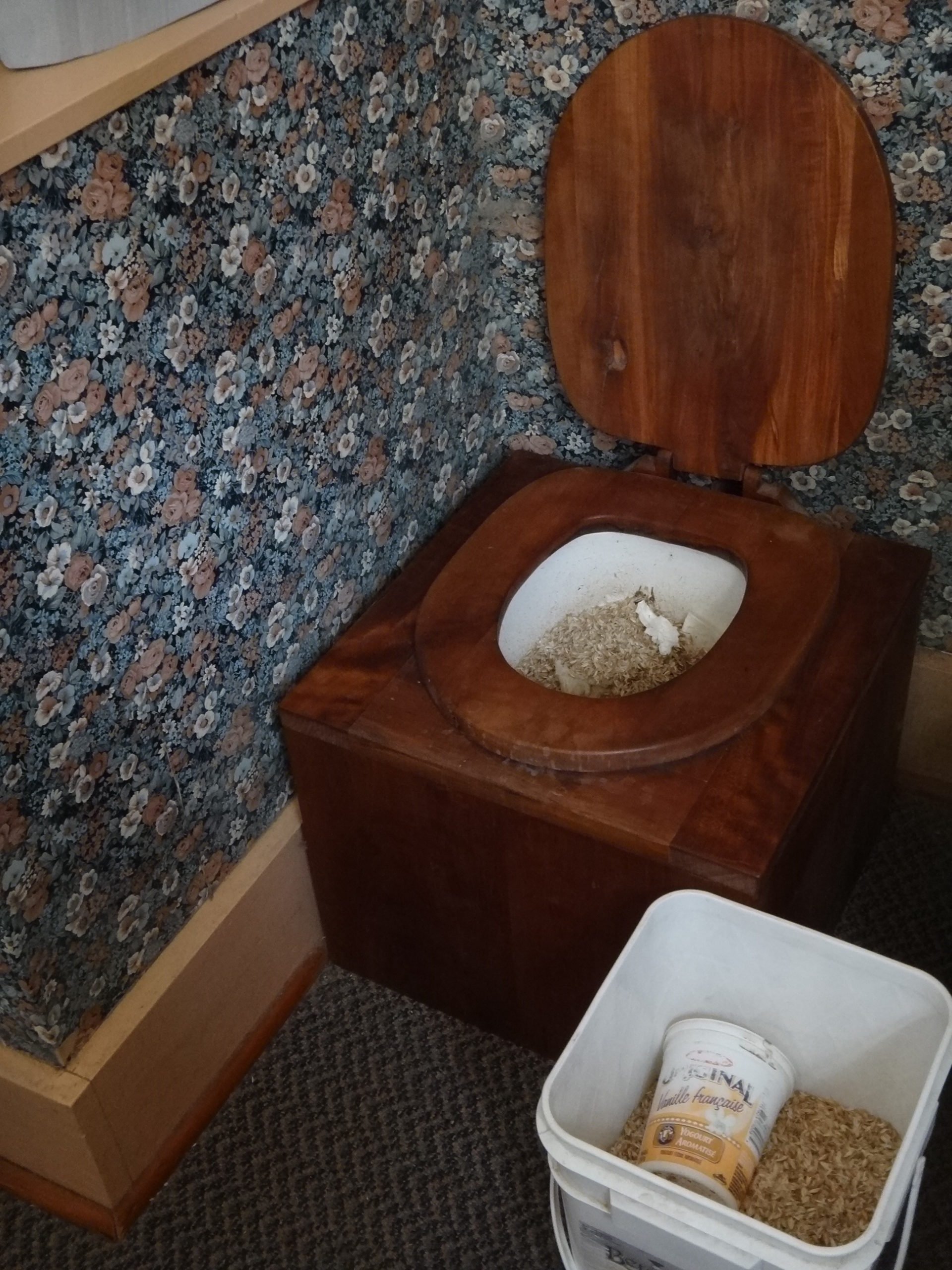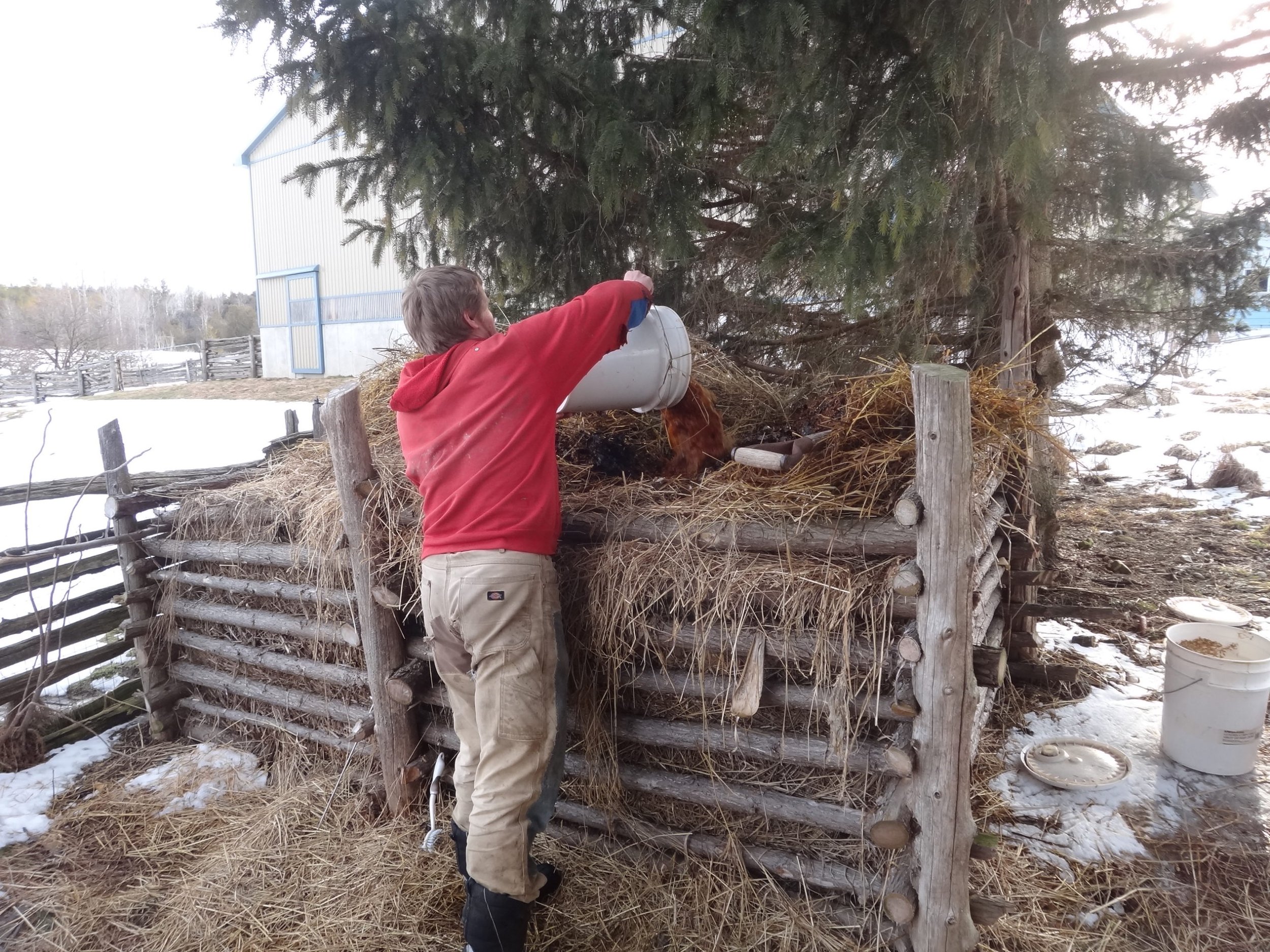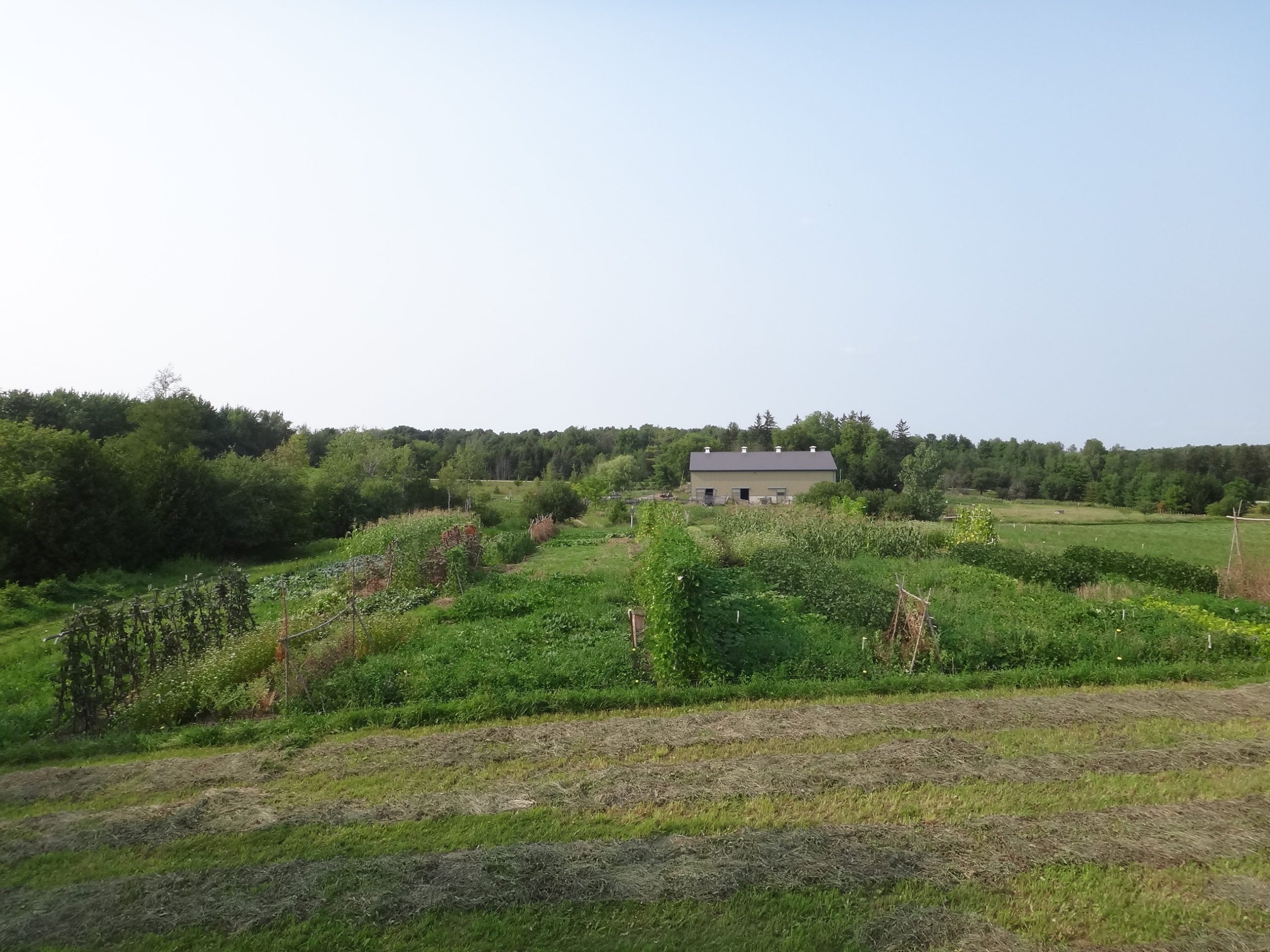33: Composting: An Act of Pacifism
Canada
A Climate Pollinator story by Sierra Ross Richer
The Wiederkehr family farm in Ontario, Canada doesn’t need a sewage system to take away its waste. That’s because the contents from the family’s compost toilet are decomposed and put back on the land as fertilizer.
Andre and Theo Wiederkehr, brothers who run the farm along with their parents, believe that keeping nutrients on the farm in closed material cycles is an act of pacifism.
“A lot of the systems we rely on function linearly in terms of materials,” explained Andre, a graduate of Conrad Grebel University College who has spent the past few years farming full time. In conventional systems, he said, “we harvest materials and process them into what we want, use that thing and then throw that to waste.”
The problem is that when the waste product isn’t disposed of in the same place that the material was taken from, the resource is depleted.
Throughout history, Andre said, linear cycles of resource use have led to environmental destruction and contamination as well as conflicts between people.
Mennonites have long opposed participation in war, but Andre said, “In our present situation, we need to think about how we need war, how we contribute to the need for war. As long as we keep depending on linear systems, we’re going to keep contributing to the need for war.”
Andre and Theo are dedicated to breaking out of that cycle.
On their farm, the family grows all of their own vegetables, grains and legumes, and raises their own animals for meat. This way, the nutrients in their food can be returned to the soil they came from.
Food isn’t the only thing they focus on. For cooking and heat, the family relies on firewood collected in a forest on the back of the property. Andre makes farming tools out of local wood and other materials, and Theo uses straw from the grains he grows to weave sun hats.
The family’s home, a log cabin built in the mid 1800s, was made from wood that will eventually be recycled very near the place it was harvested.
“If our waste has to travel 200 feet to go back to where it came from,” Andre said, “that’s a whole lot easier than if it had to travel a few hundred kilometers. If our house is built of wood instead of being built out of concrete and metal, then the resources that it’s made from can be produced very locally and when it breaks down, it can be disposed of very locally.”
Andre believes that climate change is a “symptom of the waste products of linear fuel systems.”
“Looking at the problem of climate change as coming from linear resource use,” he said, “has shaped how we want to try and respond to it.”
The brothers know that one family opting out of harmful global systems won’t solve climate change, but Andre said, as Mennonites, they come from a long tradition of people standing up to the status quo.
“I think it’s partly a moral responsibility,” he said, “to not be one of the people who are contributing to that need for war.”
Photos




